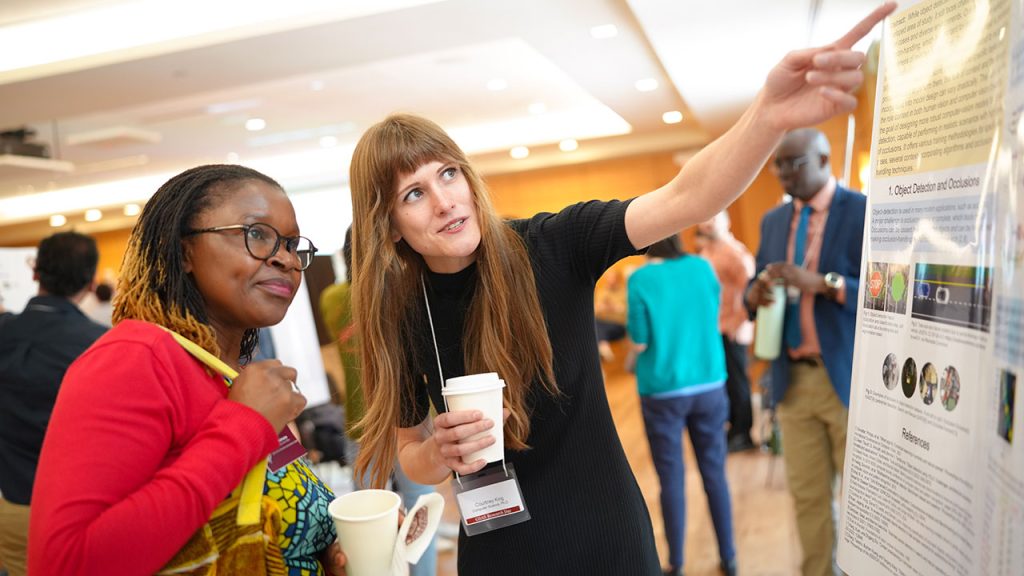More than 30 students from the Graduate School of Arts and Sciences (GSAS) gathered at Bepler Commons on the Rose Hill campus on April 30 to celebrate the research that is a critical part of their master’s and doctoral studies. Topics ranged from biology and theology to economics and psychology.
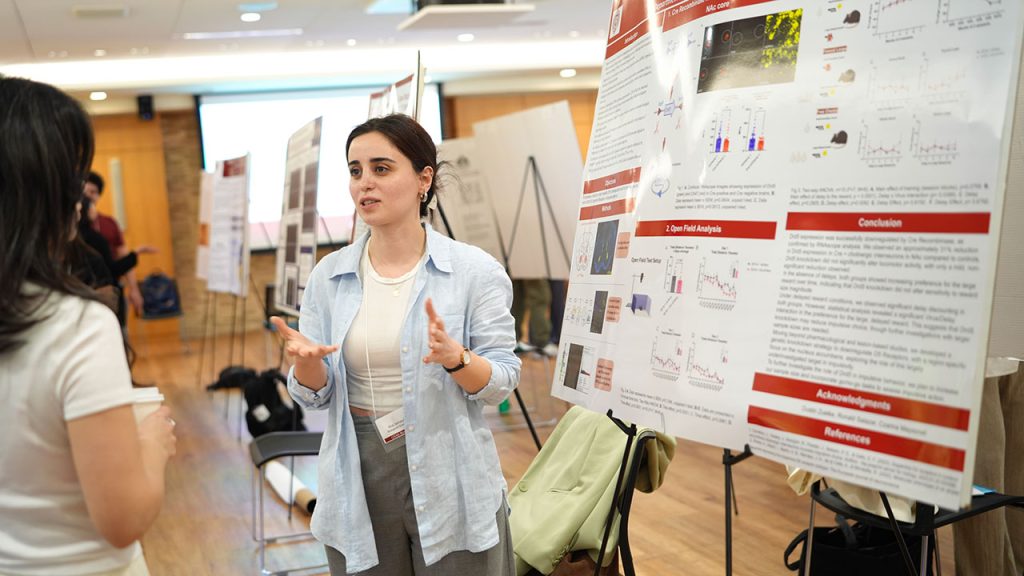
How Do Brain Cells Control Impulsive Behavior
Working in the lab of Professor Eduardo Gallo, Nia Ismayilzada, a Ph.D candidate in biological sciences, has been looking at how dopamine receptors in the brain control impulsive behavior. She’s been focused exclusively on brain cells known as cholinergic interneurons.
“These cells express two types of dopamine receptors,” he said. One type is already known to promote impulsive behavior. So they wondered: Does the second type inhibit it?
“We decided to come up with different methods to control the expression levels of [the second type] in brain cells in mice, and then see the effects of this deletion on impulsive behavioral tests.”
The most recent test found that those mice were still not impulsive, which was not what was expected. Ismayilzada hasn’t given up on the role of D5 yet, though.
“We are going to perform this test again with another cohort, increasing our sample sizes and employing other types of behavioral tests,” she said.
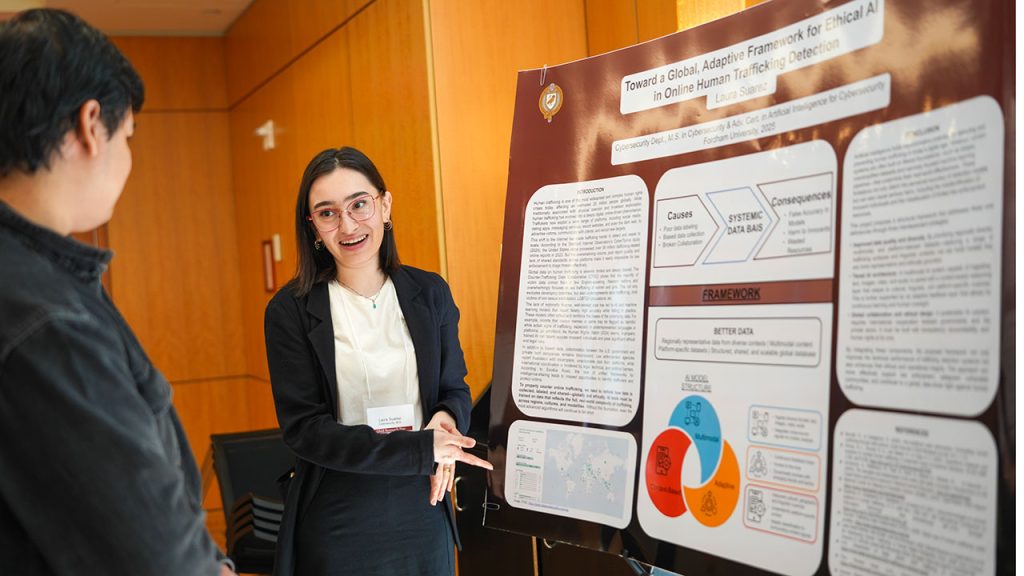
Ethical AI in Online Human Trafficking Detection
AI is being put into service to detect human trafficking, but Laura Suarez, who has a background in law enforcement, says many of the AI models being tried have serious issues. She believes her framework will make it possible to build a better system for detecting human trafficking on a global scale.
“I envision a model that takes in text, images, and videos, because that’s all present in forums where human trafficking takes place,” said Suarez, an MS candidate in cybersecurity.
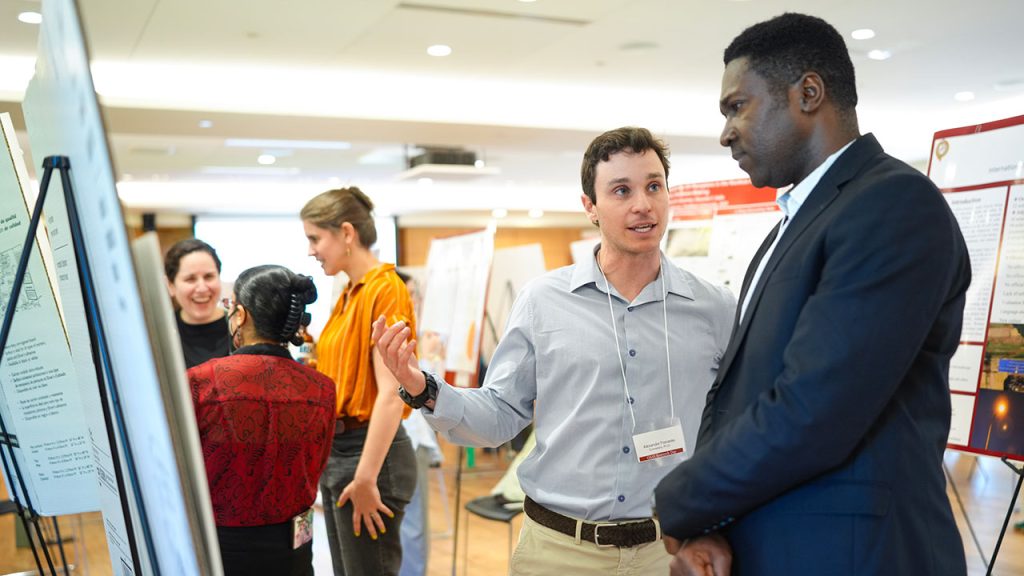
Effects of Congestion Pricing on Collisions and Injuries in NYC
Although congestion pricing has been widely debated in New York since the 1950s, there’s still a disconnect between what people assume it will do and what it actually does, said Alexander Ferrante, a Ph.D. candidate in economics.
So he collected public data on 1.2 million crashes in New York City where the police were called, zeroing in on the window of time after Jan. 5, when congestion pricing began south of 60th Street in Manhattan.
“My early results indicate that in the congestion relief zone, there has been a decrease in crashes. Places outside of the zone are also seeing benefits,” he said, noting that he plans to continue to collect data before publishing his full findings.
“That makes plenty of sense, right? To get below 60th Street, where the tolls begin, you have to drive on various different networks to get there. If there are fewer cars driving on various networks, there are likely fewer crashes along that network”.
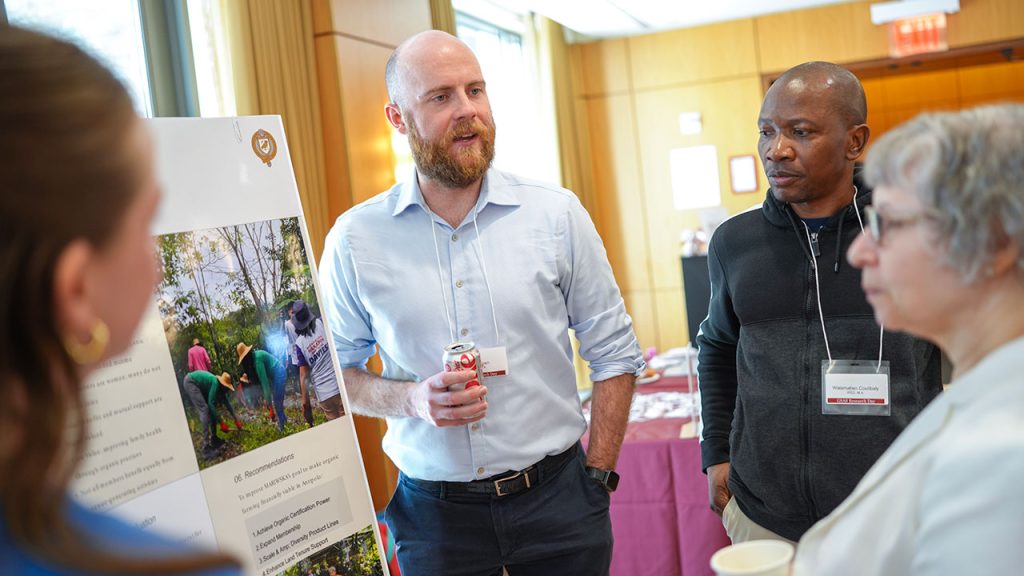
Making Organic Farming Financially Viable
Luke Olsen traveled with fellow International Political and Economic Development master’s students Walamatien Coulibaly and Samantha Ketter to the Marikina Watershed Kaysakat Association, an organization in the mountains east of Manila in the Philippines, that works on securing land tenure for poor farmers. Their goal was to assess the challenges the farmers face, particularly in the face of climate change, and recommend ways to overcome them.
One of the ways the farmers make a living is to take raw products, like bananas, and turn them into “value-added products,” like banana chips, which they can sell for more.
“One of our recommendations was for these farms to get the stamp that says organic on [products like these], which could potentially raise their profits,” said Olsen.
“One surprise was the complexity of the challenge. Sometimes, the way we think about economic development can be static. When you get out in the field, you realize how many different inputs there really are to something as complex as that.”

